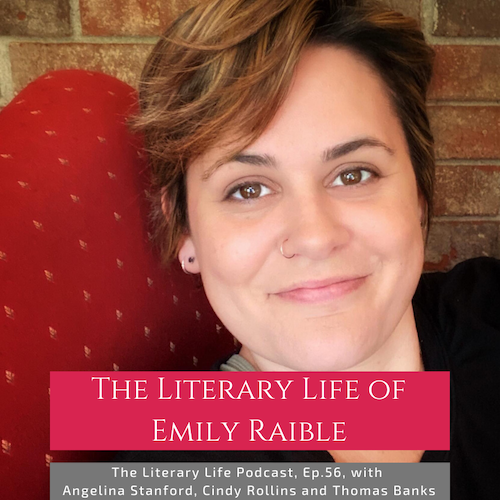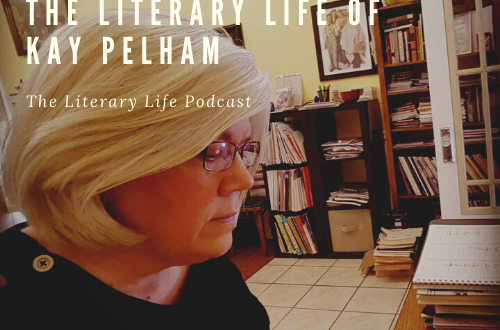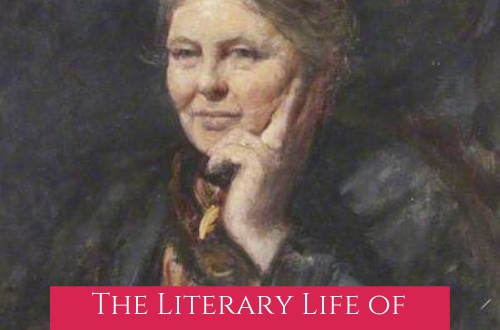
Episode 56: The Literary Life of Emily Raible
Today on The Literary Life Podcast, our hosts Angelina and Cindy chat with Emily Raible. First, though, they announce our #20for2020LitLife reading challenge giveaway winners! If you were one of our winners, please email Cindy at Rollinsfamily11(at)gmail(dot)com to give her your contact information and get your prize! Also, coming up August 3-7, 2020, we will be having our second annual Back to School Online Conference. This year’s featured speaker will be Karen Glass. Register at CindyRollins.net to get access live or later!
Our guest today is Lit Life “superfan” Emily Raible. Emily is a homeschool mom, an avid reader, birdwatcher, baker and probably Angelina’s most loyal student. In telling the story of her reading life, Emily talks about her childhood and how she was not a reader as a young person. She shares how she finally started getting interested in reading through Janette Oke and Hardy Boys books. Then she tells about borrowing books from a local family’s home library and starting to fall in love with true classics.
After getting married to an avid reader, Emily started going through her husband’s own library during her long hours at home alone. Even after she became of lover of reading, Emily still didn’t define herself as a real reader. Emily shares her journey to becoming a homeschooling parent, how she learned about Charlotte Mason and classical education, and her first time meeting Angelina and Cindy. They continue the conversation expanding on the feast of ideas, what it means to be a “reader,” and how we learn and enter into the literary world throughout our lives.
Stay tuned next week when we will be discussing Tolkein’s essay “On Fairy Stories“, followed by a conversation about his short story “Leaf by Niggle” for the next two weeks.
Listen to The Literary Life:
Commonplace Quotes:
But the object of my school is to show how many extraordinary things even a lazy and ordinary man may see, if he can spur himself to the single activity of seeing.
G. K. Chesterton
Time can be both a threat and a friend to hope. Injustice, for example, has to be tediously dismantled, not exploded. This is often infuriating, but it is true.
Makoto Fujimura
The poet is traditionally a blind man, but the Christian poet, and story-teller as well, is like the blind man whom Christ touched, who looked then and saw men as if they were trees but walking. This is the beginning of vision, and it is an invitation to deeper and stranger visions than we shall have to learn to accept if we are to realize a truly Christian literature.
Flannery O’Connor
Armies in the Fire
by Robert Louis Stevenson
The lamps now glitter down the street;
Faintly sound the falling feet;
And the blue even slowly falls
About the garden trees and walls.
Now in the falling of the gloom
The red fire paints the empty room:
And warmly on the roof it looks,
And flickers on the back of books.
Armies march by tower and spire
Of cities blazing, in the fire;—
Till as I gaze with staring eyes,
The armies fall, the lustre dies.
Then once again the glow returns;
Again the phantom city burns;
And down the red-hot valley, lo!
The phantom armies marching go!
Blinking embers, tell me true
Where are those armies marching to,
And what the burning city is
That crumbles in your furnaces!
Book List:
Tremendous Trifles by G. K. Chesterton
Culture Care by Makoto Fujimura
Rascal by Sterling North
Anne of Green Gables by L. M. Montgomery
Little Women by Louisa May Alcott
Poppy Ott by Leo Edwards
Midsummer Night’s Dream by William Shakespeare
The Once and Future King by T. H. White
The Lord of the Rings by J. R. R. Tolkein
The Eye of the World by Robert Jordan
Pride and Prejudice by Jane Austen
Mansfield Park by Jane Austen
Howards End by E. M. Forster
The Divine Comedy by Dante (trans. by Dorothy Sayers)
Illiad and Odyssey by Homer
The Great Gatsby by F. Scott Fitzgerald
A Room of One’s Own by Virginia Woolf
Why Should Businessmen Read Great Literature? by Vigen Guroian
The Scarlet Pimpernel by Baroness Orczy
Are Women Human? by Dorothy Sayers
Confessions by Augustine
Wind in the Willows by Kenneth Grahame
Babe the Gallant Pig by Dick King-Smith
Brambly Hedge by Jill Barklem
Support The Literary Life:
Become a patron of The Literary Life podcast as part of the “Friends and Fellows Community” on Patreon, and get some amazing bonus content! Thanks for your support!
Connect with Us:
You can find Angelina and Thomas at HouseofHumaneLetters.com, on Instagram @angelinastanford, and on Facebook at https://www.facebook.com/ANGStanford/
Find Cindy at https://cindyrollins.net, on Instagram @cindyordoamoris and on Facebook at https://www.facebook.com/cindyrollins.net/. Check out Cindy’s own Patreon page also!
Follow The Literary Life on Instagram, and jump into our private Facebook group, The Literary Life Discussion Group, and let’s get the book talk going! http://bit.ly/literarylifeFB
Subscribe to The Lit Life:









One Comment
Brian J T Clarke
Hello, on your The Well Read Poem podcast, your opening and closing music is beautiful. Is that accessible elsewhere? Thank you.